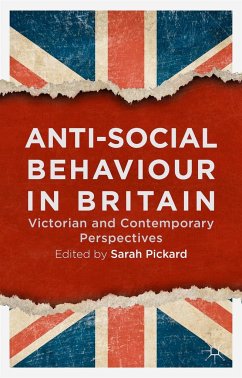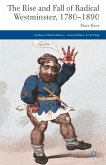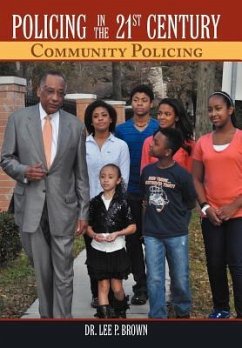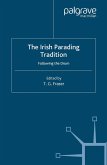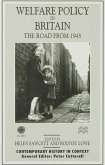"This is a gem of a book. It is an impressive collection of essays that successfully problematizes and historicizes anti-social behaviour. Moreover, it is a truly interdisciplinary endeavour - and it is all the stronger as a result. It is theoretically-informed, packed full of fascinating case studies and has much to offer historians, criminologists, and sociologists, not to mention those working in the fields of police studies, politics and social policy. It casts fresh light on the history of anti-social behaviour in the Victorian era as well as underlining the complex nature of the phenomenon as it manifests itself at the start of the twenty-first century." - Andy Croll, University of South Wales, UK
"The meanings attributed to the contested term 'anti-social behaviour', the governance and regulation of the phenomenontogether with its derivation and aetiology, are questions that invoke lively debates. By historically situating such debates and by tracing the contextual continuities and changes that frame understandings of, and responses to,'anti-social behaviour', Pickard's edited volume makes a major scholarly contribution." - Professor Barry Goldson, Charles Booth Chair of Social Science, University of Liverpool, UK
"This is a comprehensive exploration of conduct attracting censure and a variety of controls in Victorian and contemporary Britain. The parallels and differences between the two eras are well drawn. This is the most complete survey of perceptions of anti-social behaviour and action to curb it now available, filling in detail gaps in previous overviews. In each era marginal groups are targeted and a wide range of behaviours are seen as 'anti-social'." - Elizabeth Burney, University of Cambridge, UK
"One of the major contributions of the book is that it provides critical insight into the continuities and discontinuities between the Victorian and contemporary eras. This includes the subjectivity of 'anti-social behaviour' and the shifting boundaries of (in)tolerance in which it is framed... A strength of the collection is its multi-disciplinary approach to the subject matter.
There are contributions from disciplines including sociology, criminology, history and politics. This provides a rich multi-dimensional perspective on both the contemporary and Victorian approaches to 'anti-social behaviour'... Overall, this book makes a significant contribution to knowledge and should be of interest to scholars from a broad range of disciplines" - Criminology & Criminal Justice 15(4)
"Anti-Social Behaviour in Britain is a very welcome addition to the literature, not just in the field of criminological studies in this area, but also to the growing library of books on historical aspects of crime and deviance... Sarah Pickard has innovatively composed an excellent collection of essays into this edited volume which details a variety of behaviours from incivility to riot and the vast spectrum of different conducts between them (which also includes offences and behaviours related to blasphemy, truancy, football hooliganism, public protest, homelessness, nomadism, and alcohol and illicit drug use)." - Law, Crime and History 2
"Comparisons between different time periods are frequently called for, but often fail when actually attempted. This book is an example of how such a comparative endeavour can succeed. It combines detailed scholarship on specific cases, showing how social history and sociology enlighten each other with contemporary questions, and, together with the bibliography, provides an excellent starting point for any further historical work on deviance and marginality." - International Review of Social History 60(2)
"The meanings attributed to the contested term 'anti-social behaviour', the governance and regulation of the phenomenontogether with its derivation and aetiology, are questions that invoke lively debates. By historically situating such debates and by tracing the contextual continuities and changes that frame understandings of, and responses to,'anti-social behaviour', Pickard's edited volume makes a major scholarly contribution." - Professor Barry Goldson, Charles Booth Chair of Social Science, University of Liverpool, UK
"This is a comprehensive exploration of conduct attracting censure and a variety of controls in Victorian and contemporary Britain. The parallels and differences between the two eras are well drawn. This is the most complete survey of perceptions of anti-social behaviour and action to curb it now available, filling in detail gaps in previous overviews. In each era marginal groups are targeted and a wide range of behaviours are seen as 'anti-social'." - Elizabeth Burney, University of Cambridge, UK
"One of the major contributions of the book is that it provides critical insight into the continuities and discontinuities between the Victorian and contemporary eras. This includes the subjectivity of 'anti-social behaviour' and the shifting boundaries of (in)tolerance in which it is framed... A strength of the collection is its multi-disciplinary approach to the subject matter.
There are contributions from disciplines including sociology, criminology, history and politics. This provides a rich multi-dimensional perspective on both the contemporary and Victorian approaches to 'anti-social behaviour'... Overall, this book makes a significant contribution to knowledge and should be of interest to scholars from a broad range of disciplines" - Criminology & Criminal Justice 15(4)
"Anti-Social Behaviour in Britain is a very welcome addition to the literature, not just in the field of criminological studies in this area, but also to the growing library of books on historical aspects of crime and deviance... Sarah Pickard has innovatively composed an excellent collection of essays into this edited volume which details a variety of behaviours from incivility to riot and the vast spectrum of different conducts between them (which also includes offences and behaviours related to blasphemy, truancy, football hooliganism, public protest, homelessness, nomadism, and alcohol and illicit drug use)." - Law, Crime and History 2
"Comparisons between different time periods are frequently called for, but often fail when actually attempted. This book is an example of how such a comparative endeavour can succeed. It combines detailed scholarship on specific cases, showing how social history and sociology enlighten each other with contemporary questions, and, together with the bibliography, provides an excellent starting point for any further historical work on deviance and marginality." - International Review of Social History 60(2)

